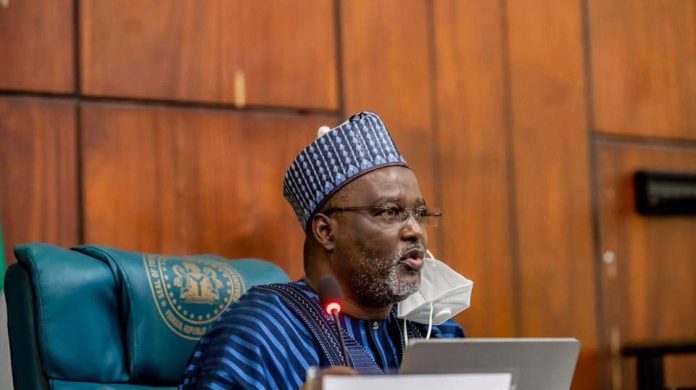Reps Speakership Race Gets Messier As Wase Shuns Gbajabiamila
The race for speakership of the House of Representatives is getting messier by the day, as the Deputy Speaker, Ahmed Wase, has stopped attending leadership meetings of the lower legislative chamber.
The parleys, held at the behest of Speaker Femi Gbajabiamila, traditionally precede plenary sessions of the Green Chamber. It was observed that Wase, who is opposed to adoption of Dr. Tajudeen Abbas by the ruling All Progressives Congress (APC) for speakership of the 10th House, has since last week, stopped joining the Gbajabiamila-led procession into the hallowed chamber.
The outgoing Speaker, who is touted to be Chief of Staff to incoming President Bola Tinubu, is an integral member of the group of legislators from the APC, NNPP, LP, ADC and APGA backing Abass for the plum job.
The development is coming against the backdrop of attempt by opposing lawmakers to amend the House rules to revert to secret ballot system.
The chamber had, in controversial circumstances on July 24, 2019, amended its standing orders for election of presiding officers to be conducted in an open ballot system.
The resolution followed adoption of report of the Prof. Julius Ihonvbere-led ad hoc committee. Besides Wase, Muktar Aliyu Betara, Yusuf Adamu Gagdi, Sada Soli, Aminu Sani Jaji and Miriam Onuoha, tagged G7, are in the race for speakership of the House.
However, a member of the group and Majority Leader, Alhassan Ado Doguwa, last week, stepped down for Abbas, in deference to directive of the Senator Abdullahi Adamu-led National Working Committee (NWC).
But Gagdi, who is a critic of the party’s power-sharing arrangement, has insisted to run, noting that it was great injustice for the seat not to be zoned to North Central geo-political, where he and Wase hail from.
The Plateau-born lawmaker argued that in the absence of justice, equity and fairness, party supremacy and loyalty remain inconsequential.
He said his group would not be intimidated by introduction of the controversial open ballot system, adding that the measure would not save Abass from defeat.
Gagdi, who boasted that the G7 would produce the next Speaker, noted: “In this circumstance, in whatever manner the election is going to take place, we are not scared. It has disadvantages to both parties.
“What of opposition parties’ members that would have conspired against their own parties’ directives to vote for the government-adopted candidate if it were secret ballot system.
“You think too the open ballot system would not count against the people that think they can use intimidation against our supporters?
“Look at the composition of the House. The opposition parties have 82 lawmakers, and the ruling party, 178.”





